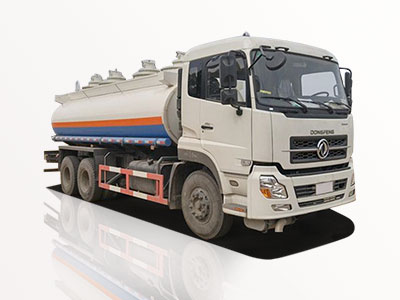Introduction to Bulk Gas Transport
Bulk gas transport plays a critical role in the global energy landscape, enabling the delivery of natural gas, propane, and other gaseous commodities from production sites to end users. The efficient movement of these materials is crucial not just for meeting domestic needs, but also for international trade and energy security. This article delves deep into the various aspects of bulk gas transport, exploring its methods, challenges, innovations, and the future trends shaping this essential industry.
What is Bulk Gas Transport?
Bulk gas transport refers to the large-scale movement of gases via specialized infrastructure. This can include pipelines, LNG (liquefied natural gas) tankers, and specialized shipping containers. The process is vital for various industries, including heating, electricity generation, and chemical manufacturing.
Types of Gases in Bulk Transport
- Natural Gas
- Propane
- Butane
- LNG (Liquefied Natural Gas)
- Hydrogen
Methods of Bulk Gas Transport
Pipelines
Pipelines are the most common method for the bulk transport of gases. They offer continuous flow over long distances and are widely considered the most economical option.
Advantages of Pipelines
- Low operational costs
- Minimal environmental impact when properly constructed
- Reduced risk of product loss
Challenges with Pipelines
- High initial setup costs
- Vulnerability to leaks and ruptures
- Geographical limitations
LNG Transport
LNG is natural gas that has been cooled to a liquid state, making it easier to transport over long distances, particularly where pipelines are not feasible.
Process of LNG Transport
- Cooling the gas to -162°C, transforming it to a liquid.
- Transporting the LNG in specialized shipping tanks.
- Regasification at the destination before distribution.
Advantages of LNG Transport
- Can reach markets generally inaccessible to pipelines
- Higher energy density, allowing for efficient shipping
Challenges of LNG Transport
- Complex infrastructure and higher costs
- Environmental concerns associated with LNG facilities
Compressed Natural Gas (CNG) Transport
CNG is another form of natural gas that has been compressed to less than 1% of its volume at standard atmospheric pressure, making it suitable for storage and transport in specialized tanks.
Applications of CNG Transport
- Fuel for vehicles, especially in public transportation
- Delivery to remote locations where pipelines are not available
Innovations in Bulk Gas Transport
Technological Advances
Recent technological advancements have greatly influenced how bulk gas transport operates. Innovations in compressor technology, telemetry, and real-time monitoring have been particularly impactful.
Real-time Monitoring Systems
Modern telemetry systems allow operators to gather data on pressure, temperature, and flow rates, enabling rapid response to potential issues that could affect transportation safety and efficiency.
Environmental Innovations
As environmental concerns grow, the transport industry has begun to adopt greener solutions such as hydrogen as an alternative fuel and carbon capture technologies.
Tapping into Hydrogen Transport
Hydrogen is gaining traction as a clean fuel source. There are ongoing efforts to develop infrastructure for hydrogen production, storage, and transport to reduce reliance on fossil fuels.
Safety Considerations in Bulk Gas Transport
Safety in bulk gas transport is paramount, given the potential for incidents that can endanger lives and cause environmental damage.
Regulatory Framework
Different countries have regulations in place to ensure safety in gas transport, including regular inspections, technical standards, and emergency response protocols.
Common Safety Measures
- Installation of shut-off valves and safety alarms in pipelines
- Regular maintenance and monitoring of LNG facilities
- Training personnel in emergency response procedures
Economic Impact of Bulk Gas Transport
The economic implications of bulk gas transport are significant. As countries seek to diversify their energy sources and decrease dependence on traditional fossil fuels, gas transport continues to play a critical role.
Global Trade Dynamics
Bulk gas transport enables countries to export surplus gas and import supply as needed, affecting international relations and economic interdependencies.
Market Trends
| Region | Natural Gas Production (BCF/D) | Net Export/Import (BCF/D) |
|---|---|---|
| North America | 92 | +12 |
| Europe | 91 | -78 |
| Middle East | 72 | +34 |
Future of Bulk Gas Transport
The future of bulk gas transport is poised for significant changes driven by technological innovations, policy shifts, and growing environmental awareness.
Emerging Technologies
Technological advancements, particularly in automation and data analytics, are set to revolutionize the way gas is transported, making it cleaner and safer.
Sustainability and Policy Shifts
Governments around the world are increasingly implementing policies aimed at reducing greenhouse gas emissions. This is likely to spark investment in greener transport methods, including the use of biofuels and renewable energy sources for transport operations.
Frequently Asked Questions (FAQ)
1. What is the most efficient method of bulk gas transport?
Pipelines are generally considered the most efficient due to their low operational costs and continuous flow capabilities. However, for long-distance shipping, LNG transport can be more practical when pipelines are not available.
2. How is LNG transported?
LNG is transported in specialized tanker ships designed to keep the gas in a liquid state. After reaching its destination, the LNG undergoes regasification before being distributed as natural gas.
3. What safety measures are in place for bulk gas transport?
Safety measures include shut-off valves, regular inspections, monitoring systems, and emergency response protocols to address any incidents that may arise during transport.
4. What are some environmental concerns associated with bulk gas transport?
Environmental concerns include potential leaks leading to air and water contamination, the carbon footprint of transport processes, and impacts on local ecosystems.
5. How do geopolitical factors affect bulk gas transport?
Geopolitical factors can influence gas supply routes, trade agreements, and pricing, impacting global energy security and the dynamics of market relations between countries.
6. What role does bulk gas transport play in renewable energy integration?
Bulk gas transport is essential for integrating renewable energy sources by serving as a bridge during periods of low renewable output, ensuring consistent energy supply through gas as a transitional fuel.



